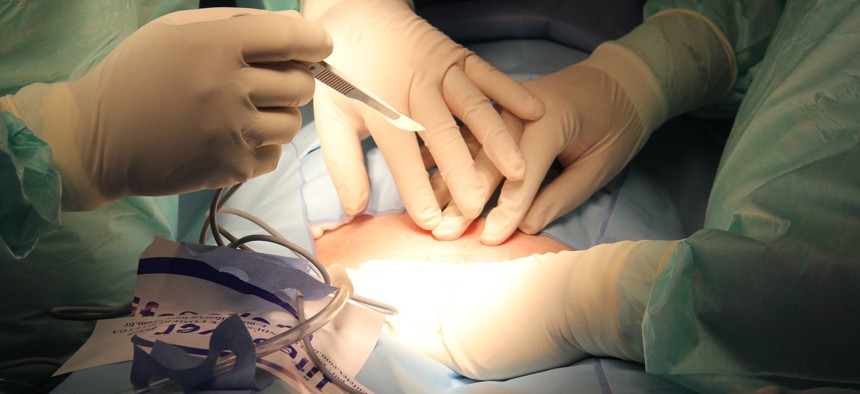Opinion
Opinion: My experience as an organ donor is the gift that keeps on giving
With April being National Donate Life Month, more people need to understand how sorely needed donors are, Michelle Canale writes.

Image by Debora Alves from Pixabay
Eight years ago, I donated my right kidney to my brother-in-law, Mark Torke, an orthopedic surgeon who suffered from a genetic kidney disease and needed a transplant to survive. The transplant was a success, and today Mark leads an active life enjoying his family, taking care of his patients, and finding time for his passions of hunting, fishing and gardening.
During the month of April, National Donate Life Month, I wanted to share this story with the hope of encouraging more people to consider becoming an organ donor. More than 100,000 men, women and children are on the national transplant waiting list, according to federal government statistics. Seventeen people die each day waiting for a transplant. The truth is, if more people understood how sorely needed donors are, and how incredibly rewarding it is to be able to help another human being in this way, then perhaps there would be many more happy endings like Mark’s.
In my case, the decision process evolved over time. Doctors had been monitoring Mark’s status for years, but he reached a point where the need for a transplant became more pressing. There were no other family members with the right health profile to donate. As it turned out, both Mark and I had the “O” blood type, and even though his was O negative and mine O positive, just having the same letter blood type is sufficient for a kidney transplant.
I decided to go through the donor screening program at Tampa General Hospital (TGH), where the transplant would be performed. I must make note of the outstanding process that TGH has in place for potential donors, providing information about what to expect and answering every question or concern.
For me, the decision process was made easier by the fact that I am an advanced practice nurse and Certified Registered Nurse Anesthetist (CRNA), so the prospect of being in an operating room was not foreign to me. Still, I had the same concerns that many people probably have when considering this step. A person can live with one kidney, but what if down the road another member of the family or my own child might need a kidney? Ultimately, I realized that these possibilities were very remote, and in contrast, here was this person right in front of me now whose life hung in the balance. Mark needed this, and his family needed him.
Along with the successful result of the transplant, this experience has truly been the gift that keeps on giving. Every year, on the anniversary of our surgeries, Mark texts me a thank-you. The happiness I get from this decision is something I will always carry with me.
To encourage more people to consider organ donation, expanding the conversation is critical. Healthcare providers can play a role in educating their patients about the need and the process. Patients should consider talking to their primary care doctor or another trusted health professional about this subject as well, along with discussions about becoming an organ donor as part of your final wishes.
The more we expand the conversation, the more people can be inspired to help. I know this from my own experience. During the period when I was making my decision, my husband took my teenage son to get his learner’s permit for driving. When they came back, my son showed me the card where he had decided on his own to check off the option to become an organ donor. Never underestimate how much you may inspire another person by the decisions you make.
Michelle L. Canale, DNP, CRNA, APRN, is the president of the Florida Association of Nurse Anesthesiology. She is also Nurse Anesthesia Program Director and an assistant professor at the University of South Florida College of Nursing, and a practicing CRNA in the Tampa Bay area.
NEXT STORY: Bill Cotterell: Republicans will come to regret winning on abortion
